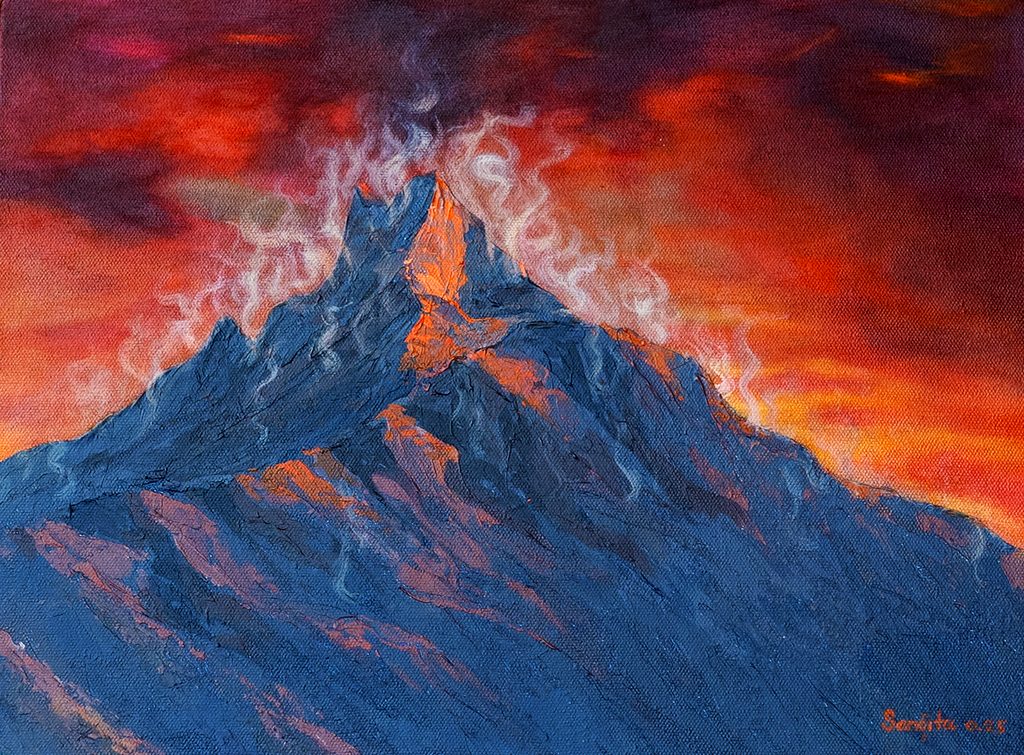Climate change cannot be ignored
In this blog, climate change activist Supriya urges leaders to recognise how climate change affects the most vulnerable and calls for fair and urgent action that listens to the voices of those on the frontlines. This blog is part of the blogathon organised by Plan International Nepal to mark International Youth Day 2025.

By Supriya, climate change activist
Rising risks and reality in Nepal
Climate change is not a distant threat for Nepal; it is happening now and reshaping lives and landscapes. Although Nepal contributes less than 0.1% of global greenhouse gas emissions, the country faces serious risks from floods, melting glaciers, and unpredictable weather. These are not just environmental problems but issues of fairness and justice.
Nepal is home to over 3,800 glaciers and nearly 1,500 glacial lakes, with several classified as very high risk for Glacial Lake Outburst Floods (GLOFs). These floods can cause catastrophic damage. For example, the 2021 Melamchi flood, triggered by heavy monsoon rain and unstable land, caused at least 5 deaths and left many families homeless for years. It also destroyed bridges and the water supply system, with damage costing more than 500 million US dollars.
Rising temperatures and decreasing rainfall are also changing Nepal’s high-altitude areas. At Rara Lake, satellite data shows the wetland’s area has shrunk by 1.25% over 20 years. These changes threaten both ecosystems and communities.
At the same time, development projects like hydropower plants inside protected areas have caused concern. These projects often bypass environmental rules and ignore the Free, Prior, and Informed Consent (FPIC) of Indigenous communities, leading to displacement and violations of rights.

Climate justice and the impact
Climate change worsens inequality. Rural and Indigenous communities face the greatest risks with the least resources. Among them, girls and women are especially vulnerable. They often bear the brunt of climate disasters, yet their voices remain unheard.
Rural areas and indigenous lands are often the first to feel the effects of erratic rainfall, landslides, and rising temperatures. These communities depend on farming, forests, and rivers for survival, yet they have the fewest resources to adapt when the environment changes.
For indigenous women, the challenges are doubled. They not only face the loss of their homes, crops, and water sources, but also the erosion of cultural traditions tied to the land. In some mountain regions, warmer winters are reducing yields of traditional grains, forcing families to buy expensive imported food. When food is scarce, girls often eat last and least, leading to malnutrition and school dropouts. In flood-affected areas, girls face increased risks of early marriage, trafficking, and gender-based violence.
Globally, women make up around 80% of people displaced by climate disasters. In Nepal, the number is rising as glacial floods and unpredictable monsoons push families from their villages. Loss of land and livelihoods means loss of identity, especially for Indigenous groups whose knowledge of forests, herbs, and local ecosystems is vital for conservation.
True climate justice means recognising these unequal burdens and ensuring that the voices of girls, women, and Indigenous peoples guide climate action. This includes protecting their rights in all development projects, securing land tenure, and providing education and training that helps them adapt and lead.
Nepal can take bold steps: strengthen early warning systems for floods and glacial lake outbursts, invest in resilient crops and water systems, and support women-led adaptation initiatives. Globally, countries most responsible for emissions must provide fair funding to those bearing the greatest costs.
Call to action
I urge everyone, leaders, communities, and individuals to recognise how climate change is affecting the most vulnerable, especially girls and women in Nepal. We need fair and urgent action that listens to the voices of those on the frontlines. Development must respect the rights of Indigenous peoples and protect the environment. Countries that have caused the most pollution must take responsibility. Together, we must work for climate justice to ensure a safer and fairer future for all.
Categories: Campaigns, Emergencies


